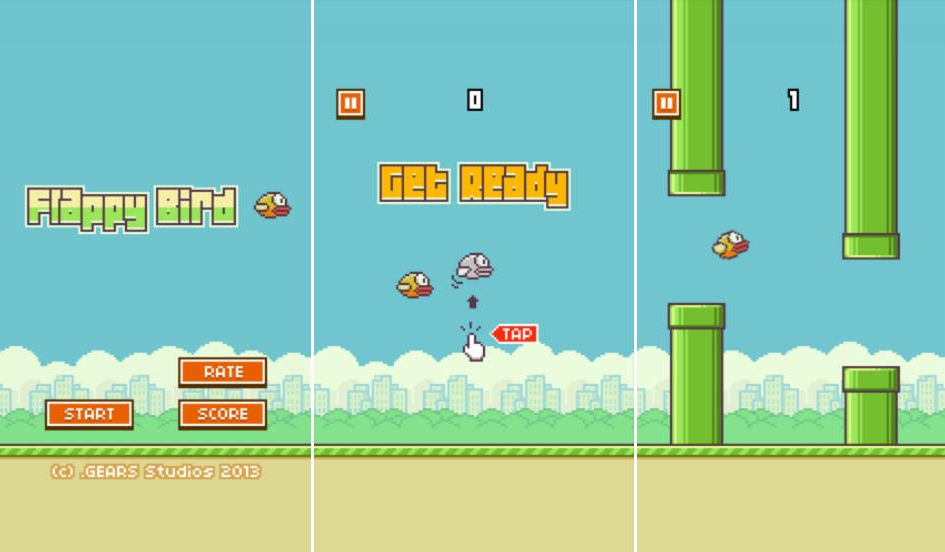
Days after the notoriously frustrating app game Flappy Bird was pulled from iTunes, its elusive developer Dong Nguyen spoke out about the decision: "It happened to become an addictive product," he told Forbes. "It's gone forever."
Nguyen explained that the game was apparently designed to "play for a few minutes when you are relaxed," but instead became an obsession for many of its loyal fans. "My life has not been as comfortable as it was before," he said. "I couldn't sleep."
And like that, the most popular game on iTunes disappeared.
Indeed, it's clear from Twitter that at least some Flappy Bird fans had formed a bizarre bond with the game. When Nguyen announced he was planning to stop selling the app, some responded with outrage. "I WILL MURDER YOU," one wrote. "Kill yourself," wrote another.
"People are very consumed by it," said Deni Carise, Deputy Chief Clinical Officer of CRC Health Group and an adjunct professor at the University of Pennsylvania's medical school. According to her, Flappy Bird offered many of the rewards sought by gamers with addictive tendencies, particularly "mindlessness, repetition, and illusion of skill."
Still, it's certainly an uncommon, if admirable, move for a game developer to pull a hugely popular title because it is too addictive. But then, inside and out, Flappy Bird has always been something of a mystery.
First the facts: Back in May, when the app was published by the small Vietnam-based studio .GEARS, it performed relatively poorly on iTunes. Upon its release, it earned a download rank of 892 and 1078 in the U.S. Kids and Families categories, respectively, before vanishing from the charts days later. Given the game's simple, frustrating premise and the fact that Nguyen claimed to have designed it in only a few days, that performance seemed reasonable. But then, in November, Flappy Bird began to climb the download charts. On January 17, it became the No. 1 game on iTunes, and apparently pulled in some $50,000 in ad revenue each day.
In early February, speculation surfaced that Flappy Bird had cooked its download stats after app developer and marketer Carter Thomas noted the game's uncharacteristic rise. "I've never seen this," Thomas wrote, pointing out that two of .GEARS other titles suddenly began to climb the charts at the same time. Thomas suggested bots may have been used to manipulate the iTunes ranking.
Nguyen has done little to quell those rumors. When asked by Newsweek via Twitter whether the download stats were manipulated, Nguyen said "It doesn't matter." And it's unlikely a definitive answer will come from elsewhere any time soon. Apple has yet to return Newsweek's request for comment.
To some extent, it hardly matters now. Whether or not .GEARS or Nyugen used bots to cook Flappy Bird's ranking back in November, the game was undoubtedly popular by the time it was pulled on Sunday. Smartphones with the app already installed have shown up on Ebay, where it appears a mix of legitimate and fake accounts are driving auction prices into the thousands of dollars.
In the end, Forbes' interview with Nguyen only furthers the mystery surrounding the Flappy Bird story. A condition of the interview, conducted in a hotel in Hanoi, was that Forbes not reveal Nguyen's face. According to the reporter, the interview then had to be delayed while Nguyen met with Vietnam's deputy prime minister (though the reason for the meeting was not given).
Nguyen said he has no plans to pull down his other two successful games, which he deemed "harmless" as far as addiction goes, but would remove them if he felt they were hurting users. When the reporter asked him if he had any comment for fans, he simply thanked them for playing his game.
Uncommon Knowledge
Newsweek is committed to challenging conventional wisdom and finding connections in the search for common ground.
Newsweek is committed to challenging conventional wisdom and finding connections in the search for common ground.





